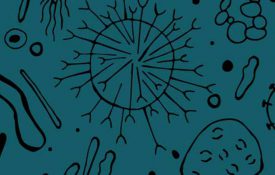-

Brains and Bacteria
What’s in our guts can affect what’s on our minds. Psychological scientists and microbiologists collaborate to explore the relationships among gut microbes, mood, behavior, and the immune system.
-
Terrie Moffitt Elected to National Academy of Medicine
APS Fellow Terrie E. Moffitt has been elected to the National Academy of Medicine in recognition of her ground-breaking contributions to the understanding of human development. Moffitt, a professor of psychology and neuroscience at Duke
-
2019 William James Fellow Award Goes to Phelps, Gilbert, Nadel, Werker
APS Past President Elizabeth A. Phelps, along with Daniel T. Gilbert, Lynn Nadel, and Janet F. Werker, are recognized for lifetime achievement in the basic science of psychology.
-
Can brain-stimulating implants treat some severe cases of autism?
It’s 7 p.m. on a Friday and Rebecca “Becky” Audette is already in bed, tucked under a polka-dotted lavender comforter. Dark purple velour curtains with butterfly ties hang over the lavender walls of her bedroom.
-
Are We Wired to Sit?
Are we born to be physically lazy? A sophisticated if disconcerting new neurological study suggests that we probably are. It finds that even when people know that exercise is desirable and plan to work out
-

The Fluidity of Time: Scientists Uncover How Emotions Alter Time Perception
The study of time perception serves as a hallmark of integrative science, mixing linguistics, cognitive neuroscience, and attention research to explore the ways people feel the minutes and hours pass. And increasingly, this research is focusing on the role that emotion plays in distorting our sense of time.

